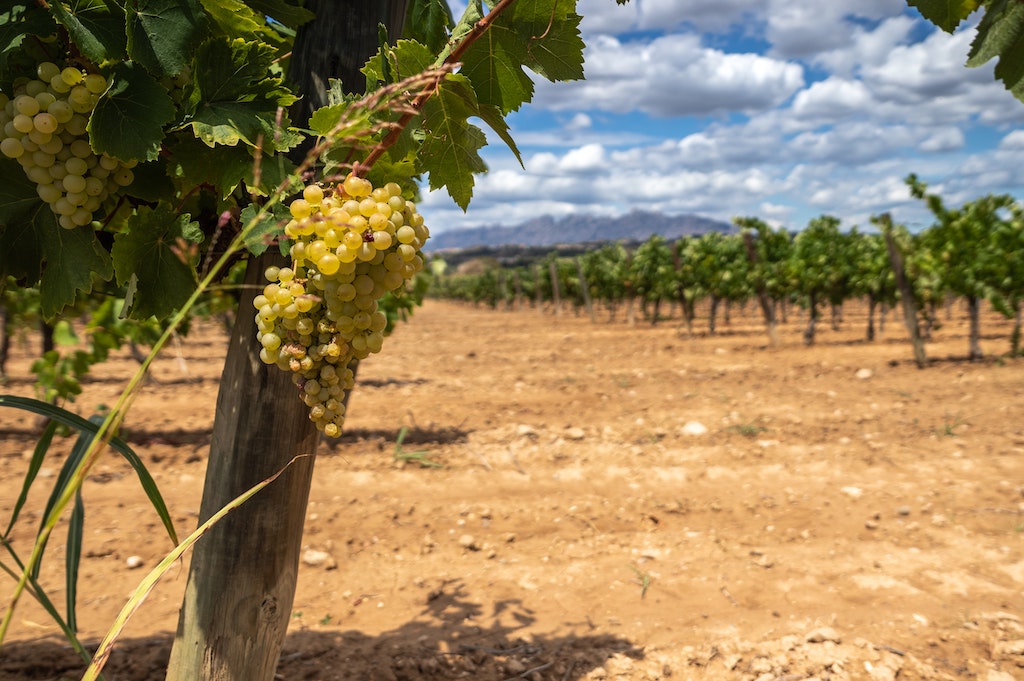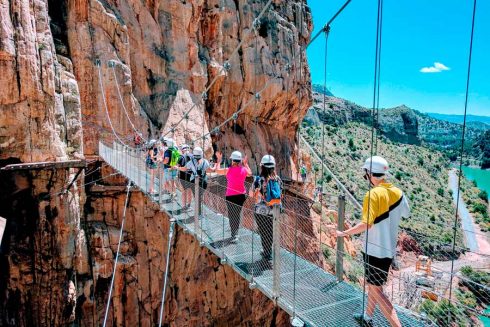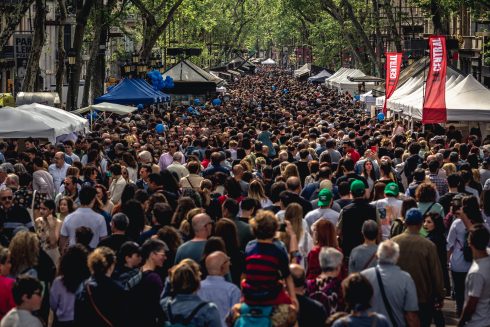IF you’re smugly thinking that Spain will have the most Spanish speakers in the world, you’re wrong.
That’s Mexico.
If you’re thinking perhaps Spain had the largest empire in the world, you’re also wrong: that was the British.
With 83.7 million tourists Spain was almost the most-visited country in the world in 2019, but just pipped by France with 90 million.
And no, Spain is not the country with the most sangria.
Sangria is just the Spanish word for ‘punch’ and it’s associated with Spain because, well, they took out EU regulations banning anyone (except Portugal) from using it.
Mallorca’s most famous son Rafael Nadal is legendary but still tied with Roger Federer and Novak Djokovic as the male tennis players with most grand slams (20) in history.
Close, but not quite numero uno.
Nevertheless, Spain still has a stellar cast of inventors, business leaders and do-gooders who make the nation stand proud.
Here are eight things you didn’t know Spain was a world leader in.

1. World’s top organ donor
For the last 29 years Spain has consistently been the world’s top country for organ donors.
That is, the country with the most percentage of organ donors per 1 million inhabitants.
According to figures from 2020 Spain had 38 donors per 1 million people, well above the EU average of 18 per million.
These figures also are still a slight decline from pre-pandemic 2019 when Spain accounted for 20% of all organs donated within the EU and 6% globally.
The most donated organs were kidneys, which can be life-saving and mean patients with kidney failure can live without needing daily dialysis.
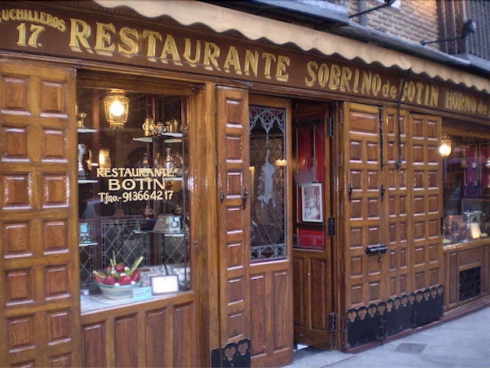
2. Spain has the most bars per person
Before we start thinking Spain is a health-crazy country, it’s worth admitting it has the most bars per person of any nation.
According to 2020 data from Spain’s National Institute of Statistics (INE) there are 277539 bars in Spain.
That’s one bar for every 175 people.
While this figure looks at bars per person, Spain nevertheless has more bars than in the entire United States of America.
That’s despite Spain having a population of 47 million and the USA of 330 million.
The culture of eating and drinking out runs deep in Spain.
In fact, the average household spends 16.8% of their monthly earnings on it – over double the European average and triple the German average.
Another fun fact is that Madrid’s Restaurante Botin is the oldest restaurant in the world, having opened its doors in 1725.

3. Spanish inventions
We won’t go as far as to say Spain invented the mop.
Let’s not get silly, that was the American Jacob Howe in 1837 followed by his compatriot Thomas W. Stewart in 1893 who figured out how to attach the mophead better to the stick.
But the mop-and-bucket was a singular Spanish invention designed by Manuel Jalon Corominas in 1964.
Manuel was the first to patent the classic design where a plastic colander-type-thing sits fixed atop a bucket allowing for quick drainage, making Spain an unlikely leader in household cleanliness.
Perhaps designed for those hundreds of thousands of bars, eh Manuel?
Other Spanish inventions include table football, writing quills, epidurals, Chupa Chups lollipops and the digital calculator.
Oh, and by the way, Spain also invented mayonnaise.
Quoi? I hear you shouting. Ce n’est pas Français?
Non. La mayonnaise ce n’est pas Français mes amigos.
According to the most popular origin story, it was in 1756 when French forces laid siege to Port Mahon on the Balearic island of Menorca.
After discovering the Spanish island lacked cream for a righteous victory sauce, the Duke de Richelieu’s chef stole an egg and oil dressing he dubbed mahonnaise from the locals.
The term has been a bone of contention ever since, with many proud Spanish chefs refusing to call it anything but mahonesa after the Menorcan capital of Mahon.
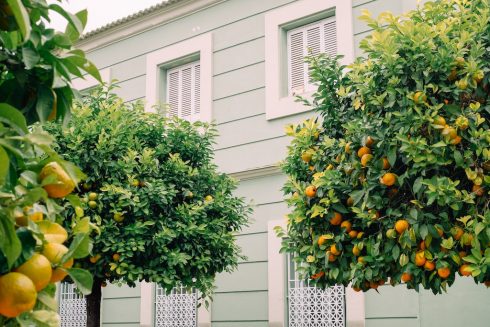
4. Spanish exports
Spain hit the headlines in late 2020 over the state of its pig farms, coinciding with its newfound status as the world’s largest exporter of pork products.
But Spain has a number of other star exports that aren’t so damaging.
Spain is the world’s leading exporter of citrus fruits, for example, enjoying a 24.2% market share that’s well ahead of second-place South Africa’s 10.9%.
No surprises that Spain is also the world’s leading exporter of olive oil, dominating a whopping 46.9% of the world’s export market.
The country has over 300 million olive trees with 80% of the annual crop harvested from southern Andalucia.
Second-place Italy’s 16.7% market share pales in comparison.
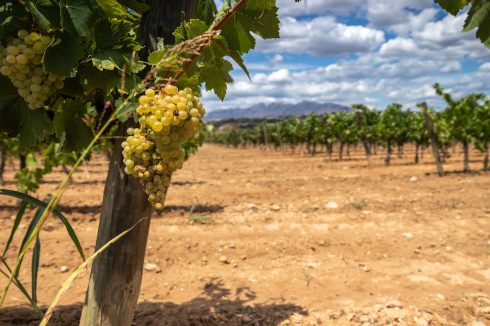
5. Most vineyards
Though wine-slugging France tips Spain as the world’s top tourist destination, Spain has more vineyards than the former.
Touché!
Spain has a whopping 961,000 hectares of land dedicated to growing grapevines.
That’s an area larger than Cypress.
But despite this Spain is not the world’s biggest producer of wine – that’s Italy.
The vineyard size could be explained by the necessity to plant vines further apart in Spain due to the dry climate and arid soil.
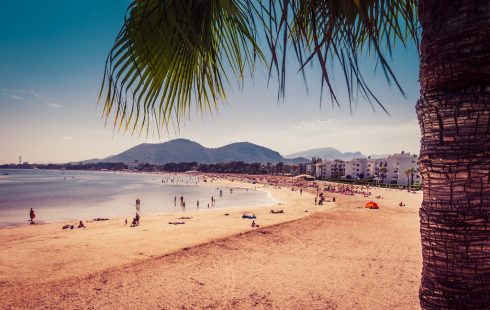
6. Most sustainable beaches
Spain has year-on-year enjoyed the most number of Blue Flag beaches in the world ever since the awards began in 1987.
The iconic Blue Flag is one of the world’s most recognised voluntary awards for beaches, marinas and sustainable boating tourism operators.
The non-profit organisation awarded Spain a stunning 615 blue flags in 2021 as it continued its 34-year reign.
Most Blue Flag beaches can be found in the Valencian Community, followed by Andalucia in the south.
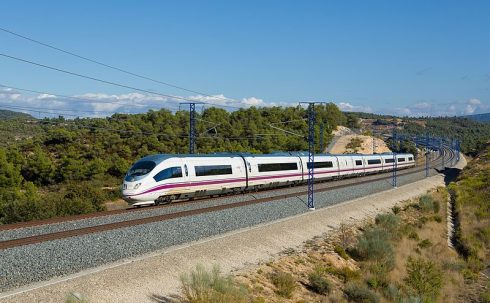
7. Industry and infrastructure
Spain is a clear world leader in the construction and transport infrastructure industries.
Eight of the world’s top 32 infrastructure contractors were Spanish in a ranking by Public Works, more than any other nation.
Spain’s Grupo ACS enjoyed the top spot with the largest number of projects in motion (59 at the time) and with the most amount of investment with US$95 million.
Other top Spanish contractors included Ferrovial, Abertis, Sacyr, Globalvia, OHL, Acciona and Itinere.
While not a world leader, Spain boasts the third-most extensive highspeed train network in the world after China and Turkey.

8. Renewable technology & environment
Spain has for a few years led the world in having the most storage capacity for solar energy in the world.
That’s 6,850MWh of storage capacity, compared to the USA (5,200MWh) South Africa (2,699MWH) and China (1,000MWh).
That doesn’t mean that Spain has the largest installed solar power capacity – that’s China with 205GW.
Spain isn’t even in the top 5 countries in the world.
Spain also lags somewhat behind in total renewable energy production coming in at position 14 among EU countries in 2019.
The country has beefed up, however, to enjoy the second-most installed wind power capacity in the EU (after Germany) and with green energies producing 47% of the nation’s electricity in 2021.
Nevertheless, Spain still leads the world as the country with the most UNESCO recognised biosphere zones (49).
READ MORE:
- TRAVEL: Nine breathtaking UNESCO sites in Spain you should put on your bucket list
- Wind power overtakes nuclear as Spain’s main energy source
- A million hectares of countryside makes Spain the world’s number one country for vineyards
- ¿Que? Eight of the strangest laws in Spain

